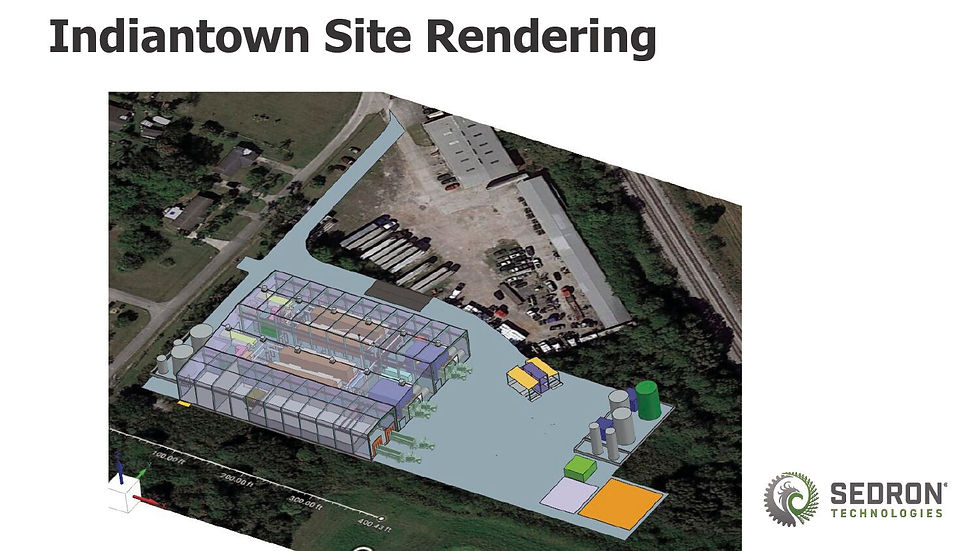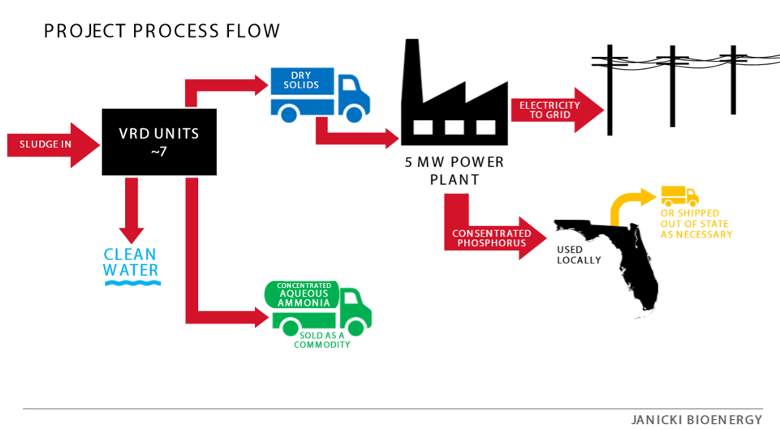August Water News
- CWC
- Aug 17, 2025
- 6 min read

CWC is pleased to recognize Melissa Meisenburg, Indian River County's Senior Environmental Specialist, as a Lagoon Champion Award recipient!
Since joining Indian River County in 2022, Melissa has transformed lagoon restoration efforts in our region. A native Floridian with a Master's degree from Florida Institute of Technology, Melissa brings both scientific expertise and passion to her work protecting the Indian River Lagoon.
As the architect behind Indian River County's comprehensive Lagoon Management Plan (adopted in September 2023) Melissa has created a roadmap for ecosystem-wide restoration. Unlike traditional approaches that focus solely on nutrient reduction, her plan takes a holistic view, addressing everything from harmful algal blooms and muck removal to sea level rise adaptation and habitat restoration.
Under Melissa's leadership, the county has launched groundbreaking projects that are setting new standards for lagoon restoration:
Large-Scale Seagrass Restoration: Leading a transformational 22.8-acre seagrass planting project—one of the largest ever attempted in the Indian River Lagoon
Living Docks Program: Partnering with FIT to wrap dock pilings with oyster mats, creating vital habitat while engaging community volunteers
Oyster Reef Restoration: Installing 640 oyster reef balls to rebuild lost habitat
Community Science: Training citizen scientists and coordinating regular volunteer events
What sets Melissa apart is her ability to build partnerships and make complex science accessible. She's forged collaborations with FIT, the Environmental Learning Center, Brevard Zoo, Clean Water Coalition, Indian River Land Trust and numerous other organizations. Her plan was intentionally written to be readable by all citizens, not just scientists, because she believes everyone has a role in lagoon restoration.
"I want future generations to have the opportunities that generations before us had," Melissa explains, "to go swimming in the lagoon, go fishing, see dolphins and manatees, and make that connection with this beautiful resource."
Whether she's knee-deep in seagrass beds, coordinating manatee rescues with FWC, or hosting oyster mat-building events, Melissa embodies the collaborative spirit needed for meaningful environmental progress. She's proof that when scientific expertise meets community engagement and genuine passion, remarkable things happen for our lagoon.

Indian River County Comprehensive Plan
Section 163.3191 of Florida Statutes requires “an evaluation and appraisal report once every 7 years assessing the progress in implementing …local government's comprehensive plan” with allowances for “amendments of the Comprehensive Plan …to evolve with the community's needs.” On August 12, the County Commission began discussion of proposed amendments to the County’s Comprehensive Plan – “the County’s blueprint for the future” which “informs and shapes other County plans, capital projects, and programs that affect the community in both large and small ways.” At their meeting, the Commission conducted a hearing of public comments regarding proposed Comp Plan amendments and elected to continue the hearing at the Commission’s September 9 regular meeting.
CWC will submit a letter to the Commission - comments regarding the proposed Comp Plan amendments. Relative to CWC’s Mission focused on “protection and restoration of surface and ground waters”, despite the underlying noble County intent, CWC’s interpretation of the proposed Comp Plan revisions indicates:
an absence in the past of County commitment to implement the Comp Plan,
a vague and uncertain commitment to implement the proposed Comp Plan as proposed to be revised, and
deficiencies to truly inform and shape “other County plans, capital projects, and programs.
CWC espouses that the County take true initiative and leadership – including under the ongoing FY 2025/2026 budget adoption process - to fund and implement County programs and measures needed to restore and sustain County water resources.

Possible Revisions to IRC Manatee Protection Plan
St Johns River Water Management District (SJRWMD) has completed their most recent seagrass survey for Indian River County. Indian River County has also completed 2 large seagrass planting projects. We are seeing seagrass recovery in some areas of the County and all seven species have been identified here indicating progress on Lagoon restoration efforts. Manatees depend on seagrass as their primary food source.
Fish and Wildlife Commission (FWC) has requested that the County form a Local Rule Review Committee to discuss whether speed zones changes in some IRC manatee protection areas are warranted.
The County is forming a 14-person committee, comprised equally of boaters and environmentalists, to review the proposed changes by FWC. A public meeting will be held at 5:30 on September 23rd at the County Commission Chambers to hear FWC’s recommendations. Committee members will then have eight weeks to meet, discuss the proposal and write a report with their recommendations by mid-November.
There was an informative article regarding the proposed revisions in July 24th “32963 Magazine”. However, an error appeared in the article which mentioned increasing the speed limits outside of the intercoastal waterway to 25mph. CWC has been informed that is NOT being proposed.
The data analysis, FWC recommendations and the committee’s recommendations will be presented at the FWC commission meeting in February for final decision making.

Florida Has a Solution to Its Biosolids Crisis
But It Needs Your Voice NOW
Do you remember when pristine Blue Cypress Lake experienced its first harmful algal bloom? Scientists helped the County Commissioners understand the bloom was caused by the deposit of sewage sludge onto ranch lands near the lake. The County Commission acted quickly banning the deposit of biosolids on farmland in IRC. Shortly after, the State banned the land deposition of biosolids within the watershed of Lake Okeechobee. Sewage sludge from wastewater treatment facilities is still trucked from south Florida and land applied in other rural parts of Florida.
Florida's waterways are drowning in sewage sludge and time is running out. The clean-up costs for the St. Johns River alone are $1.1 billion. There's hope coming from the rural central Florida town of Indiantown.
In August 2024, Indiantown unanimously approved Florida's first revolutionary biosolids processing facility using Sedron Technologies' proven Varcor system. This isn't some kind of untested experiment, it's the same technology that grew from Bill Gates' partnership with engineer Peter Janicki, successfully operating in Washington State; processing hundreds of thousands of tons of sludge annually.

The technology cuts emissions by 95% while transforming waste into clean water, boiler technology power components providing electricity, and renewable ammonia while segregating phosphorus in a light ash that can be economically transported out of the State to soils depleted of the nutrient.
Every day we delay, more toxic sludge flows into impaired waterways of Florida. Every week, more trucks haul contaminated biosolids hundreds of miles across our state. Every month, more communities face skyrocketing cleanup costs that could have been prevented. The Indiantown facility can process 150,000 tons annually, and it has been calculated that 8 plants, carefully placed, could process all the sewage sludge produced in the State. We need legislators who understand this isn't just about waste management - it's about Florida's survival.
Contact Our State Legislators TODAY and demand they:
Champion the Indiantown model - Support funding and incentives for similar facilities statewide
Ban harmful land disposal - Follow Maine's lead in eliminating Class AA and Class B biosolids dumping
Mandate PFAS testing - No more spreading untested sludge on Florida farmland
Fast-track permits - Remove bureaucratic barriers for proven clean technologies like Varcor
Create economic incentives - Tax breaks and grants for communities adopting sustainable biosolids solutions
Contact information for your state legislators is below. The time for half-measures and delays is over - Florida needs the Indiantown solution everywhere, and we need it now.
Contact Information:
Sen. Erin Grall
Phone: 850-487-5025
Email: Grall.Erin.Web@flsenate.gov
Address: 3209 Virginia Avenue, Suite A149, Fort Pierce, FL 34981
Rep. Robbie Brackett
Phone: 772-778-5005
Address: Suite B2-203, 1801 27th Street, Vero Beach, FL 32960

August kicked off with crystal clean water near the inlet and on the shore-break and solid early morning bites. Trout are feeding at first light over the grass flats, taking live pigfish or shrimp.
The action shuts down fast until the evening once the sun gets high. Snapper are stacked around the deeper docks and bridge pilings, biting well on live bait with a little current. Snook are loaded in the inlet and along the causeway, thick as ever, but catch and release only until September first, so quick hands and barbless hooks help.
Pompano are starting to trickle back into the surf, especially north of the inlet on a rising tide, and the regular lobster season opens the sixth after a bustling mini-season, so if you’re diving, stay legal and leave the reef better than you found it.







Comments